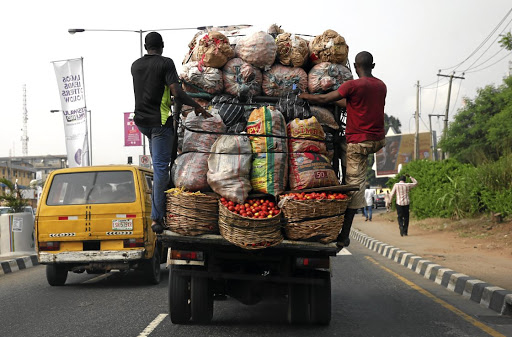 In a bid to address the soaring food prices in Nigeria, the Central Bank of Nigeria (CBN) has earmarked N100 billion and 2.15 million bags of fertilizers for the Ministry of Agriculture. Governor Olayemi Cardoso of the apex bank disclosed this during a meeting held at the Ministry of Agriculture and Rural Development’s headquarters in Abuja on Wednesday, attended by Agriculture and Rural Development Minister Mohammad Abubakar and Agriculture and Food Security Minister Abubakar Kyari.
In a bid to address the soaring food prices in Nigeria, the Central Bank of Nigeria (CBN) has earmarked N100 billion and 2.15 million bags of fertilizers for the Ministry of Agriculture. Governor Olayemi Cardoso of the apex bank disclosed this during a meeting held at the Ministry of Agriculture and Rural Development’s headquarters in Abuja on Wednesday, attended by Agriculture and Rural Development Minister Mohammad Abubakar and Agriculture and Food Security Minister Abubakar Kyari.
Cardoso emphasized the CBN’s commitment to supporting farmers as a means to alleviate the current food price challenges plaguing the nation. He stated, “The CBN has veered away from direct quasi-fiscal interventions and transitioned towards leveraging conventional monetary policy tools for executing monetary policies effectively.”
“In this light, we aim to extend our support and foster closer ties with Ministries, Departments, and Agencies (MDAs) with the mandate and expertise to undertake these critical initiatives,” he added. “Consequently, we aim to enhance our partnership with the Ministry of Agriculture, bolstering your endeavours to enhance food productivity and security, ultimately curbing food inflation and fortifying our pursuit of price stability.”
Cardoso announced the allocation of 2.15 million bags of fertilizer valued at over N100 billion to the Ministry of Agriculture and Food Security, with the intention of boosting food production capabilities and fostering price stabilization within the agricultural sector.
Minister Abubakar welcomed the collaboration, highlighting its potential to enhance food security in the country. He stated, “The rising cost of food items is negatively impacting the nation, and the Ministry of Agriculture and Food Security is seeking out avenues to ameliorate the situation.”
CBN’s Cardoso stressed the importance of active partnerships in maintaining stability in food prices, reiterating the bank’s unwavering commitment to prioritizing price stability and instilling confidence in the Nigerian economy.
Meanwhile, Minister Kyari expressed optimism that the interventions would help stabilize food prices within the country in the coming months.
Nigeria’s inflation rate reached an all-time high of 29.90 per cent in January, according to the National Bureau of Statistics (NBS), driven primarily by soaring food prices. The increase in food prices has significantly impacted the purchasing power of many citizens, making it challenging for households to afford daily meals.

INEC Rejects Petition To Recall Senator Natasha Akpoti-Uduaghan
President Tinubu Set To Depart For Two-Week Working Visit To Paris
Tinubu Reconstitutes NNPC Board, Appoints New Leadership
DSS Arrests Two Key Suspects In Edo Traveller Killings